
Ignite Healthcare Marketing Podcast
Hear the latest performance marketing strategies, industry news, and innovative tactics that will help grow your healthcare organization.
Hear From The Nation's Top Healthcare Marketing Experts

The Anatomy of a Digital Makeover: Websites, Reviews, & Integration in Healthcare
What happens when a health system takes a full-funnel approach to digital transformation? Learn how Cape Fear Valley Health revamped its website, automated reviews, and integrated EMRs—all while driving growth, improving SEO, and staying budget-conscious in a rapidly expanding system.

Balancing DTC and Referral Marketing Strategies
Looking to boost referrals and better connect with providers? Learn how to leverage third-party audience data to drive growth, align marketing with business development, and maximize ROI in this insight-packed episode.

Meeting Patients Where They Are: Multichannel Strategies for Urgent Care
Tired of relying solely on paid search? Learn how WellStreet Urgent Care uses OTT, SEO, email, and mobile to boost brand awareness, enhance patient experience, and deliver measurable results while staying aligned with leadership and community values.

How AI is Rewriting the Hospital Marketing Playbook
Curious how AI is transforming healthcare SEO? Glenn Elliott and Alex Membrillo break down smart ways to use AI, boost your Google profile, and keep your digital strategy ahead of the curve.

How to Layer 3P Data and Reach Ideal Patients
First-party data has limits. Cardinal’s Lauren Leone and Rich Briddock reveal how to unlock growth by leveraging third-party audiences. Learn how to boost targeting, reach key segments, and improve lead quality across the right platforms without breaking the budget.
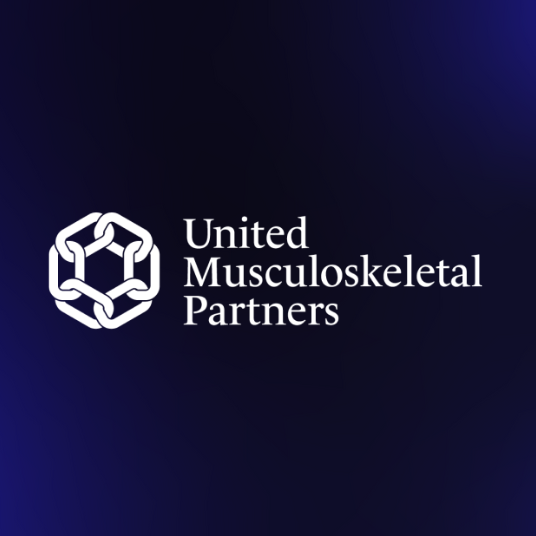
Scaling Orthopedic Growth One Patient Experience at a Time
Is your patient experience driving real growth? Daniel Goldberg joins Alex Membrillo to explore how aligned marketing and value-based care can elevate engagement. Discover how full-funnel strategies turn satisfied patients into your most powerful marketing asset.

Reactivate, Retain, Repeat: The Formula for Smarter DSO Growth
Looking to improve patient retention and marketing performance? Alex Membrillo and Ashley Minaudo explore AI, educational content, multi-brand strategy, and data analytics to enhance engagement in dental and healthcare marketing.
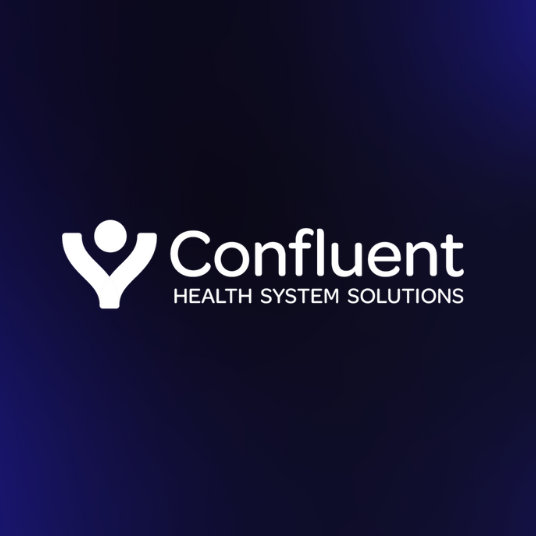
How to Build a Brand Patients and Clinicians Love
How can healthcare organizations attract top talent and engage patients? Meg Dietzel and Alex Membrillo explore employee branding, recruitment marketing, and digital strategies that drive performance and retention in healthcare.

Creative That Actually Converts: What It Takes to Engage Your Audience
Want to turn creative into real results? Join Lauren Leone and Jean Zhang as they unpack how performance creative—powered by audience insights and testing—can elevate healthcare campaigns, boost patient engagement, and drive higher conversions.

Leveraging CRMs & CDPs for Better Patient Retention
How do you turn patients into loyal advocates? Healthcare marketing expert Kelly Green explores how CRM, CDP, and cross-functional strategies can drive patient engagement, boost retention, and power long-term success in healthcare marketing.

The ‘Platinum Rule’ Every Healthcare Marketer Needs to Hear
How do you reach patients—and their caregivers—in today’s AI-influenced, crowded market? Todd Richards, Sr. Director of Digital Marketing at Keck Medicine of USC, shares why blending traditional and digital strategies and following the “Platinum Rule” are the keys to building trust and winning patients.

How to Differentiate Your Brand in a Crowded Market
In this episode of Ignite, healthcare marketers can gain valuable insights into the importance of aligning marketing strategies with macroeconomic factors and consumer needs. Marketing expert Jennifer Rusk joins Cardinal’s CEO, Alex Membrillo, in a discussion that highlights the necessity for marketers to think like CMOs, considering broader economic trends to inform business strategies and create effective marketing plans. This episode encourages marketers to return to fundamental business practices, emphasizing the significance of treating employees and clients well, which can lead to sustainable business growth and improved lead acquisition outcomes.

The Halo Effect: How Social Media Can Supercharge Paid Search
Doubt that your social media ads are driving patient bookings? Here’s how to find out. Our hosts, Cardinal’s CGO, Lauren Leone and Senior Director of Analytics, Alex Kemp, dive into the hidden influence of social media on paid search—what we call ‘The Halo Effect.’ We’ll break down how we test, analyze, strategize, and forecast to maximize impact.

Service Line Marketing: How to Fill Schedules Not Waitlists with Christus Health
This episode of Ignite is packed with actionable insights you won’t want to miss! Join Cardinal’s CEO, Alex Membrillo, and Christus Health’s Service Line Marketing Director, Alvaro Fernandez, as they break down the strategies, data, and technology shaping the future of healthcare marketing. From tracking KPIs to navigating the lag effect of brand advertising, you’ll learn how to make smarter, data-driven decisions that drive real conversions. Plus, our hosts dive into the role of AI in search and advertising and why full-funnel marketing is becoming a game-changer in healthcare.

Going Beyond PPC to Win Patients
In this episode of Ignite, healthcare marketing expert, Jenn McClain, joins Cardinal’s CEO, Alex Membrillo, to share valuable insights into staying competitive in a rapidly evolving landscape. The two delve into the importance of a full-funnel patient journey, the integration of digital and offline marketing, and the power of social media influencers to enhance your brand’s reach. By focusing on data-driven insights and effective content strategies tailored to each platform, you’ll learn how to stay competitive and drive meaningful growth in the healthcare sector.

How to Turn Leads Into New Patients Like a Pro with Recovery.com and Key Performance Consultants
This episode of Ignite is packed with actionable insights to help you not just generate leads but actually convert them into patients. Jeremiah Calvino, Co-founder of Recovery.com, and Samantha Metcoff, Head Consultant at Key Performance Consultants, join Cardinal’s CEO, Alex Membrillo to break down the strategies that make a real impact—from optimizing admissions processes to leveraging technology like Google Analytics and CRM systems. If you're looking to refine your messaging, boost patient engagement, and stay ahead of industry trends, this is a conversation you don’t want to miss!

Reaching the Right Patients with 3P Data
Evolving privacy regulations, platform changes, and shifting consumer behavior are making it harder for healthcare marketers to reach the right patients. That’s where third-party (3P) data comes in. From claims and payor data to social determinants of health, these insights help brands build qualified audiences, optimize media, and drive patient acquisition. In this episode, Cardinal’s CGO, Lauren Leone and Group Media Director, Ruchi Patel explore how to get started, best practices, and real-world use cases for leveraging 3P data to connect with high-intent patients.

How to Pick the Perfect Healthcare Marketing Agency
Choosing the right marketing agency can make or break your strategy—so how do you get it right? This week on Ignite, Cardinal’s CEO, Alex Membrillo and EVP, Strategy & Business Development of True North Custom, Jane Crosby, dive into the RFP process, red flags to watch for, and why industry expertise is non-negotiable when choosing a healthcare marketing agency. Plus, our hosts explore the latest in media, performance marketing, and technology to help you stay competitive. Tune in for expert insights that will elevate your agency partnerships and marketing success!

The Power of Communications in Veterinary Marketing with MedVet
Cardinal’s CEO, Alex Membrillo is joined by Vice President, Communications at MedVet, Sarah Berger, for a conversation packed with insights on how strategic communication can elevate your brand, align internal and external messaging, and build credibility in a competitive market. You’ll hear why collaboration between marketing and communication teams is key to crafting compelling stories, how a strong reputation directly impacts care delivery, and why focusing on the right platforms—not just the latest trends—drives success.

The Performance Creative Playbook for Healthcare Marketers
In a world where ad costs are rising, and privacy restrictions are limiting targeting, creative has become the biggest lever for paid media performance. Host Lauren Leone and guest Rich Briddock break down what defines performance creative today, why it’s more than just good design, and how privacy changes are shifting its role. They’ll dive into the battle for attention in competitive ad channels, the impact of platform algorithms, and how AI-driven optimization is reshaping creative testing. If your ad creative isn’t pulling its weight, this episode is a must-listen.

How Marketing Drives Portco Growth with H.I.G. Capital
How do you align marketing with real business outcomes? In this episode of Ignite, Anna Carlsmith, Operating Partner at H.I.G. Capital, joins Cardinal’s CEO, Alex Membrillo, to share private equity’s perspective on driving growth. They cover strategies for revenue impact, the shifting marketing landscape—including Google’s declining influence—and key considerations like HIPAA compliance, EMR integration, and balancing in-house vs. outsourced creative work.
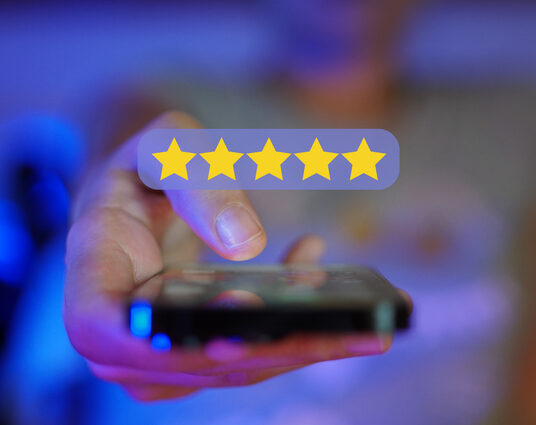
Mastering Healthcare Reputation Management with rater8 and OrthoArizona
In this must-listen episode of Ignite, Evan Steele, Founder and Chief Executive Officer of rater8 and Torin Dinh, Growth & Strategy Manager of OrthoArizona, join Cardinal’s CEO, Alex Membrillo to dive into the power of review management and online reputation in shaping patient acquisition and provider recruitment. Learn how evolving consumer expectations, local search trends, and digital-first experiences are redefining healthcare marketing in 2025. Discover key pitfalls to avoid, strategies for balancing digital and traditional marketing, and why a strong reputation is your ultimate competitive advantage.

Digital Strategies for Local Healthcare Success with Summit Physical Therapy
Discover the blueprint for local healthcare marketing success in a competitive landscape. In this episode of Ignite, Cardinal’s CEO, Alex Membrillo, and Vice President of Administration and Marketing at Summit Physical Therapy, Georgiana Clary, share strategies for standing out against national players, mastering Google and Meta ads, and building strong community partnerships that drive trust and referrals.

Transforming Healthcare Marketing with Better BI
Harness the power of business intelligence to transform your marketing and unlock new growth opportunities. This episode of Ignite tackles the unique challenges faced by marketers, including privacy restrictions, compliance requirements, and the complexities of managing disparate data silos across brands, service lines, and regions. With insights from industry experts, you’ll gain actionable strategies to turn data into meaningful decisions that drive your organization’s success.
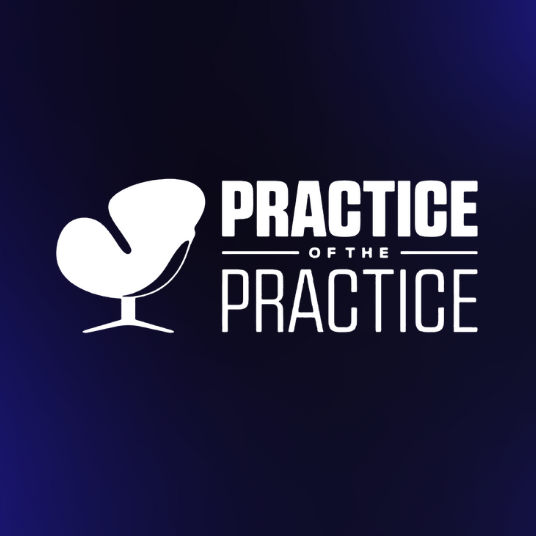
How to Create a Podcast Listeners Will Love with Practice of the Practice
This week on Ignite, Cardinal’s CEO, Alex Membrillo is joined by Joe Sanok, Author, Podcaster, and Consultant at Practice of the Practice. The two share insights on crafting a successful podcast strategy, from identifying a niche and leveraging expert interviews to monetizing through sponsorships. Tune in to learn how to elevate your brand and connect with your ideal audience in a unique and impactful way.

Modernize Your PT Marketing Strategy: From Referrals to Direct Access with U.S. Physical Therapy
Cardinal’s CEO, Alex Membrillo, sits down with Teresa Stockton, Director of Marketing, and Kimberly Valva, Associate Vice President of Operations and Business Development, to explore how U.S. Physical Therapy is transforming patient acquisition in a world where referrals are no longer the only game in town.

Top Healthcare Marketing Trends for 2025
Join Cardinal’s CEO, Alex Membrillo and Chief Growth Officer, Lauren Leone and dive into the healthcare marketing trends redefining how providers should reach and engage patients in 2025. From leveraging AI and omnichannel strategies to creating authentic patient connections and navigating measurement challenges, this episode of Ignite shares the insights and tools to drive growth and innovation in the new year.

Executive Outlook on Healthcare Marketing in 2025
Get an exclusive look at how top executives are shaping the future of healthcare marketing in 2025. From navigating economic shifts and changing consumer behavior to thriving in competitive markets, they’ll reveal where they’re investing budgets and share strategies for scaling marketing efficiently. Learn what trends they see on the horizon and how to meet consumers at every step of their healthcare journey.

Navigating Meta’s 2025 Update: What Healthcare Marketers Need to Know
Meta’s 2025 updates will reshape healthcare advertising, limiting data sharing for specific sites and apps. Unpack these updates entail, their consequences for marketers, and practical strategies to adapt effectively.

Redefining Healthcare Marketing Through Accountability, Agility, and Alignment with Monu Kalsi, Millennium Physician Group
Monu Kalsi, Head of Marketing at Millennium Physician Group joins Cardinal’s CEO, Alex Membrillo, to share valuable insights on how to align your marketing strategies with organizational goals through the AAA Framework—accountability, agility, and alignment—while focusing on the full customer journey and impact on top-line revenue.

How to Build a 2025 Marketing Roadmap: From Goal Setting to Strategic Testing
Success in 2025 starts with a clear plan. Discover how marketers can develop a roadmap that aligns digital strategies with business goals, sets priorities, and tests new channels in a smarter way.

Connecting with Multiple Audiences: Empathetic Marketing Strategies for Senior Living with Kristy Ruppe Craddock
Kristy Ruppe Craddock, Chief Sales & Marketing Officer at Commonwealth Senior Living joins Cardinal’s CEO, Alex Membrillo, to share valuable insights into the unique challenges and strategies involved in marketing for senior living communities. Tune in to learn how to effectively address the dual audience of potential residents and their adult children, and the importance of understanding their distinct customer journeys.

Driving Smarter Spend Through Marketing Incrementality
Discover how the concept of incrementality will not only aid in optimizing your marketing budget but also demonstrate the broader impact of your efforts on business outcomes, providing you with a strategic edge in discussions with leadership.

The Art of Patient Journey Mapping: Creative Strategies for Marketing Success
Join Cardinal’s Chief Growth Officer, Lauren Leone, and Sr. Creative Director, Jean Zhang, as they dive deep into how healthcare marketers can enhance their strategies by mapping out user journeys, demonstrating real value, and refining unique selling propositions (USPs). Learn how to leverage data-driven insights, test value propositions, and engage with stakeholders to create meaningful touchpoints throughout your patients' digital experience. If you're looking to make your brand messaging more empathetic, timely, and impactful, this is the episode for you!

Debunking the Biggest Myths in Healthcare Marketing
The Cardinal team dives deep into the biggest myths surrounding healthcare marketing. From the misconception that 'more traffic equals more sales' to the belief that 'AI will destroy SEO,' we’re breaking down the truths behind paid media, SEO, and more. Tune in as we dispel the myths shaping the industry, offering clear insights to help healthcare marketers navigate the complex landscape with confidence.

Media Mix Modeling: The Secret to Smarter Marketing Decisions
Join Cardinal’s Chief Growth Officer, Lauren Leone, and Chief Strategy Officer, Rich Briddock, as they unlock the power of media mix modeling with an exclusive look at our proprietary business intelligence tool, RevRx™.
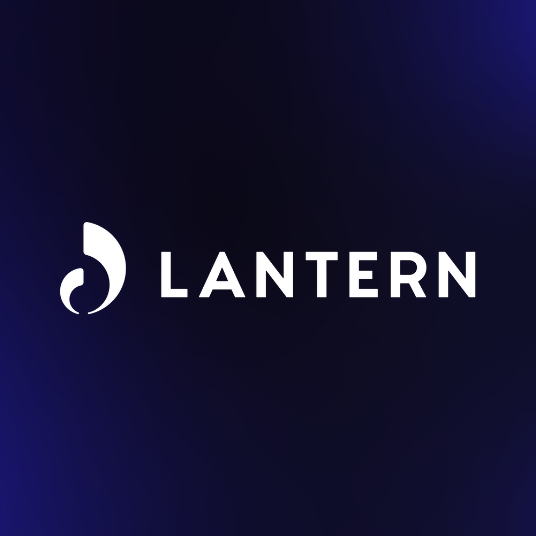
Real Stories, Real Impact: Embracing Authenticity in Healthcare Marketing with Lantern
This week, Cardinal CEO, Alex Membrillo, and Nancy Ryerson, Director of Content Marketing at Lantern, dive into the art of patient acquisition, exploring B2B and B2B2C marketing strategies tailored for healthcare marketers. Hear valuable insights into how content marketing, podcasts, and social media can boost brand awareness and drive client acquisition. From leveraging video testimonials to running virtual summits, this episode is packed with actionable tips to elevate your marketing efforts and stay ahead of industry trends.

Mastering Agency Selection: How to Build a Lasting Partnership with Hasan Ramusevic, of Hasan + Shumaker
This week, Cardinal CEO, Alex Membrillo, and Hasan Ramusevic, CEO of Hasan + Shumaker explore the intricacies of selecting the right agency for healthcare marketers. Learn how healthcare specific marketing agencies offer a deeper understanding of industry regulations and patient acquisition strategies, ultimately boosting marketing efforts.
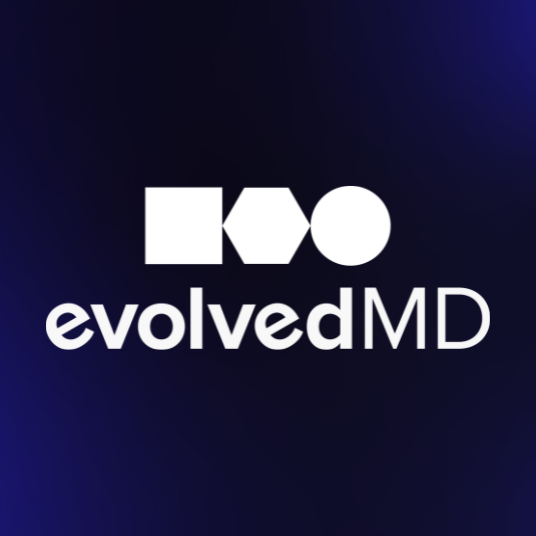
B2B Healthcare Marketing: Leveraging Thought Leadership for Strategic Success with evolvedMD
In this must-listen episode of Ignite, Cardinal’s CEO, Alex Membrillo, and Sentari Minor, Chief of Staff and Head of Investor Relations, dive deep into the art of standing out in healthcare marketing. Discover how evolvedMD is shaking up the industry by using bold storytelling and thought leadership to integrate behavioral health into primary care. You’ll walk away inspired to challenge the status quo and equipped with strategies to create compelling content that truly resonates with your audience and sets you apart in the B2B landscape.

From Brand Building to Conversions: How to Craft a Balanced Healthcare Marketing Strategy with Seth Goldberg
Tune-in to Ignite as Cardinal’s CEO, Alex Membrillo, and industry expert, Seth Goldberg, explore how educating consumers, telling compelling brand stories, and leveraging influencers can build trust and differentiate your healthcare brand in a competitive market. You'll gain valuable insights on how to effectively integrate brand building with performance marketing to create a powerful and comprehensive strategy.
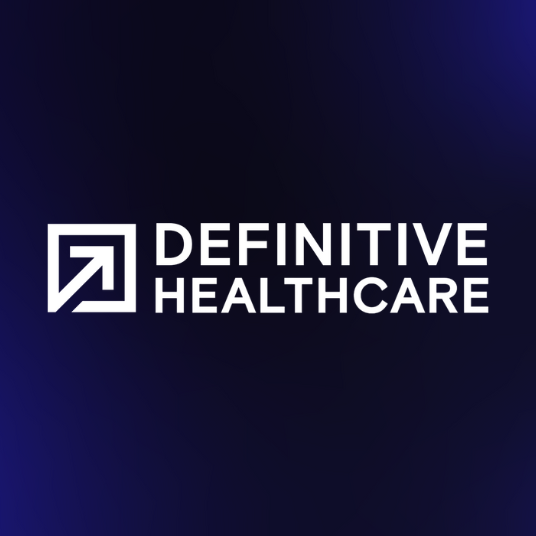
Healthcare Claims Data: The Secret to Effective Consumer Targeting with Definitive Healthcare
Cardinal’s Chief Strategy Officer, Rich Briddock is joined by VP of Sales at Definitive Healthcare, Mike Julian to explore how advanced data solutions can transform your healthcare marketing strategies into powerful revenue-generating engines. You'll learn how to target the right patient populations, optimize your marketing spend, and confidently justify your strategies to stakeholders.

Mastering Brand Identity in Healthcare: How to Stand Out in a Competitive Market with Craig Kartchner of HonorHealth
This week on Ignite, HonorHealth’s Chief Marketing and Customer Engagement Officer, Craig Kartchner joins Cardinal's CEO, Alex Membrillo to dissect the evolving landscape of healthcare marketing and the shift to viewing patients as consumers. Learn how focusing on customer experience can help you discover strategies to differentiate your brand, boost patient engagement, and stay competitive in the market.

How CRM Software Can Improve Patient Outcomes with Red Spot Interactive
Discover how leveraging advanced attribution and recall systems can improve patient retention and ultimately increase your market share and profitability! You'll hear insights from President and Co-Founder of Red Spot Interactive, Jason Tuschman on integrating marketing data with patient outcomes to make objective business decisions, ensuring every advertising dollar is maximized.

Revisiting LSAs for Healthcare: Early Results & Future Trends
Dive back into Local Services Ads (LSAs) with Cardinal’s Chief Growth Officer, Lauren Leone and VP of Paid Media, Evan Ilgenfritz, as they share valuable insights after months of testing across various healthcare verticals.

The Future of HIPAA-Compliant Marketing Analytics with Heap
In this episode, Cardinal's Chief Strategy Officer, Rich Briddock, is joined by DJ Johnson, a Solutions Consultant at Heap, to discuss how healthcare marketers can navigate the challenges of privacy-first analytics and the transition from Google Analytics to Heap. Learn why Heap is more than just a GA4 replacement, the importance of end-to-end marketing attribution, and best practices for adopting new tech and managing change.

AI-Driven Paid Media Strategies
In this episode of the Ignite, Cardinal’s Chief Growth Officer, Lauren Leone and Director of Applied Analytics, Alex Kemp, dive into the practical applications of AI in healthcare marketing! You’ll discover how tools like call tracking and lead scoring can streamline your daily marketing tasks. Our hosts also emphasize the importance of context in AI outputs, demonstrating how detailed information about your brand can enhance the quality of AI-generated content. This episode will equip you with advanced AI strategies for user research and predictive analysis, helping you make data-driven decisions and optimize your marketing efforts.
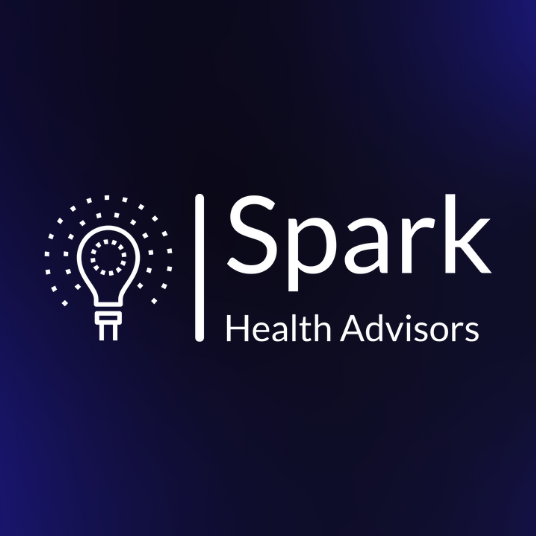
B2B2C Strategies in Healthcare: Winning Employer Clients with CEO of Spark Health Advisors, Lindsey Kratzer
In this episode, Lindsey Kratzer, CEO of Spark Health Advisors, joins Cardinal’s Chief Growth Officer, Lauren Leone, for a conversation about the unique challenges faced by digital health and clinic-based organizations in reaching both B2B and consumer markets. You’ll gain insights into developing and implementing successful “land and expand” strategies, with real-world examples from Spark Health Advisors. This episode is packed with actionable advice on building robust pipelines, crafting targeted messaging, and driving engagement to ultimately deliver better outcomes for your healthcare marketing efforts.

The Power of Patient Podcasts in Modern Hospital Marketing with Bonnie Ward, CHI St. Vincent
This week on Ignite, you'll hear expert insights from Cardinal’s CEO, Alex Membrillo and Market Director, Marketing and Communications at CHI St. Vincent, Bonnie Ward. Discover innovative strategies for healthcare marketing, including patient podcasts and the use of online health quizzes to drive patient engagement and track results. This episode is packed with actionable tips that can help you maximize your marketing budget and achieve measurable outcomes.

Marketing to the Modern Healthcare Consumer with HCA Healthcare’s Andrew Henderson
In this insightful episode of Ignite, Cardinal’s CEO, Alex Membrillo and Director of Marketing Strategy at HCA Healthcare, Andrew Henderson explore the critical role of patient experience in healthcare marketing. The discussion also covers strategies for tracking campaign success, engaging and retaining nurses, navigating compliance challenges, and understanding the nonlinear patient journey. Overall, this episode provides valuable strategies to help healthcare marketers enhance patient care, optimize their efforts, and navigate the complexities of the modern healthcare landscape effectively.

Google’s Performance Max: What Healthcare Marketers Need to Know
In this episode of the Ignite, Cardinal’s Chief Growth Officer, Lauren Leone and Director of Applied Analytics, Alex Kemp explore the intricacies of Google's Performance Max (PMAX) advertising platform. Our hosts discuss the initial challenges marketers faced, best practices for testing new media placements, and how PMAX has evolved over the past year. You’ll also hear actionable advice on how to leverage PMAX as a stepping stone towards full-funnel advertising, ensuring your campaigns are audience-focused and not just keyword-driven. Don’t miss this opportunity to elevate your digital marketing strategy!

Hopeful Hospice Marketing: Reimagining End-of-Life Care with Alysha Wilkins-Smith, Medical Services of America
Cardinal’s CEO, Alex Membrillo and Director of Marketing for Home Health and Hospice at Medical Services of America, Alysha Wilkins-Smith, come together for a discussion about the importance of patient-centered care and the power of personal connections. You'll gain insights into leveraging both digital and face-to-face tactics to tell compelling patient success stories, and understand the competitive landscape between non-profit and for-profit healthcare services. Tune in to learn how to navigate these challenges and make a meaningful impact in connecting patients with the care they need.
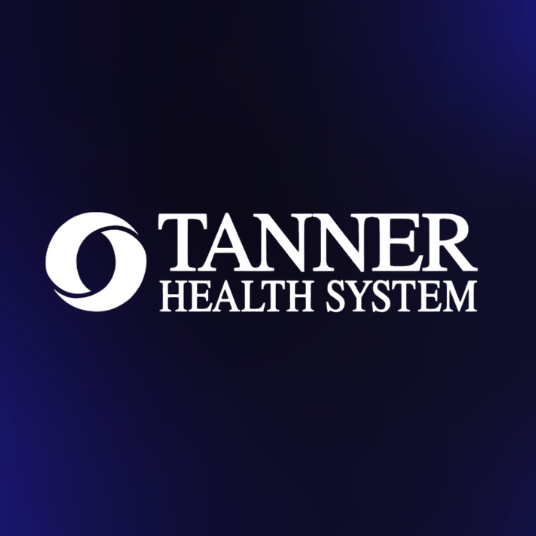
The Secrets to Building a Successful Healthcare Brand from Kelly Meigs of Tanner Health System
Dive into the dynamic world of healthcare marketing with our host and Cardinal’s CEO, Alex Membrillo, and special guest Kelly Meigs, Vice President of Marketing Strategy and Planning at Tanner Health System. Discover the secrets of building a robust marketing team, harnessing CRM for targeted outreach, and using video and PR to elevate service line brands. Learn how to stand out with unique selling propositions and tailor communications to diverse demographics. Tune in for innovative brand building strategies for your healthcare group!

The Power of Authenticity in DSO Marketing with Lacie Randall from Specialty Dental Brands
This week’s episode of Ignite is a goldmine as Lacie Randall, Director of Marketing, Pediatric Dentistry at Specialty Dental Brands joins our host and Cardinal’s CEO, Alex Membrillo. You'll learn the importance of educational content to preempt patient questions, the shift toward authenticity and personalization in dental marketing, and the significance of reputation management. Dive into strategies that resonate with a modern audience, including leveraging real patient testimonials and imperfect, relatable content. Tune in to hear insights that will empower you to enhance patient experience and engagement, ultimately driving better results for your dental brand!
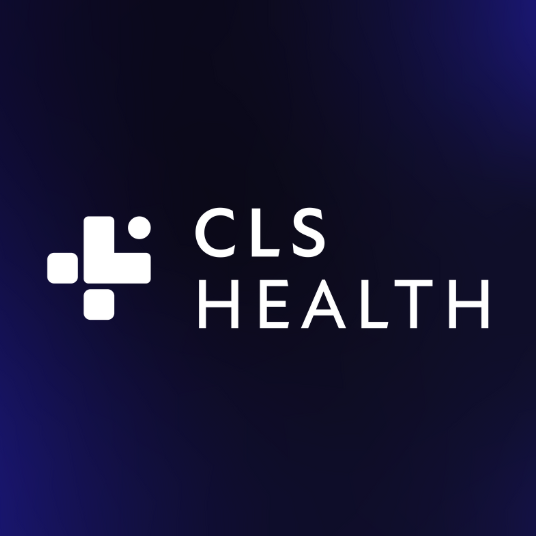
Revolutionizing Patient Care: The Intersection of Marketing and Technology with Ibrahim Albaba, CLS Health
This week on Ignite, Cardinal’s CEO, Alex Membrillo, is joined by Ibrahim Albaba, Analytics Manager at CLS Health. The two explore the intersection of healthcare services and marketing analytics and share their insights on marketing operations (MOps) alignment and the significance of seamless patient experiences. The episode touches on the use of EMR data in healthcare analytics, the impact of technology on patient acquisition strategies, and more!

Marketing for Multi-Location Dermatology with Maite Uribe-Echevarria of Sanova Dermatology
Join us on Ignite for an insightful discussion about the world of dermatology marketing. Our hosts, Cardinal CEO, Alex Membrillo, and VP of Marketing at Sanova Dermatology, Maite Uribe-Echevarria, discuss the importance of marketing and operations (MOps) alignment, HIPAA compliance, the challenges of prioritizing marketing strategies, and more!

Converting Leads to Loyal Patients: Strategies for Patient-Centric Healthcare Marketing with Cailean Contini
Discover how AI and word-of-mouth are revolutionizing healthcare marketing in our latest Ignite podcast. Learn from Cardinal’s CEO, Alex Membrillo, and industry expert, Cailean Contini, about leveraging AI for brainstorming and idea generation, while understanding the critical role of patient experience in converting leads to loyal patients. Dive into the importance of personal stories, strategic upselling, and the power of nano influencers in social media marketing. Tune in for tactical and impactful healthcare marketing strategies that prioritize patients from clicks to care.

Content Quality Check: The Impact of Google’s SEO Spam Update on Healthcare Marketing
Stay ahead of the game with insights on Google's March 2024 core update. Our hosts, Cardinal’s Chief Growth Officer, Lauren Leone and VP Earned and Owned Media, Rob Sauter, dive into the spam targeting update and explore its impact on healthcare marketing. In this episode, you’ll get tactical advice on content evaluation and learn how leading teams are adapting, prioritizing quality over shortcuts. Join the conversation on Google's mission to elevate user experience through quality-driven search results.

Decoding the HHS Bulletin: Navigating HIPAA Compliance in Healthcare Marketing with Ray Mina of Freshpaint
Discover how to navigate HIPAA compliance in digital marketing with our latest podcast featuring expert insights from Cardinal’s Chief Strategy Officer, Rich Briddock and VP of Marketing at Freshpaint, Ray Mina. Learn about leveraging HIPAA-compliant MarTech, the impact of the recent HHS bulletin update on healthcare marketing, and strategic opportunities for using first-party data while maintaining privacy. Stay ahead in healthcare marketing without risking HIPAA violations.
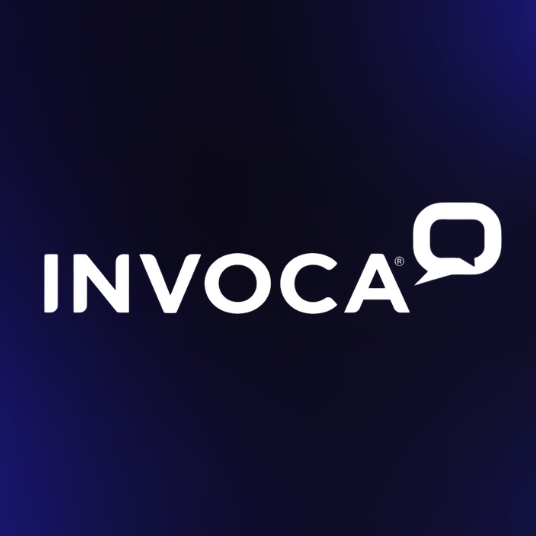
Optimize Healthcare Marketing: How to Enhance Patient Experience and Drive Appointments with Lyndey Brock of Invoca
Discover how Invoca's AI-driven call tracking revolutionizes healthcare marketing with Cardinal CEO, Alex Membrillo and Director of Account Management at Invoca, Lyndey Brock! Invoca integrates with EHRs, CRMs, and analytics platforms, ensuring HIPAA compliance and efficient patient experiences. Check out this episode of Ignite to learn how to drive business forward with targeted data, and maximize healthcare lead value with Invoca's AI-driven insights.

Attract, Retain, Grow: Strategies for Dental Marketing Success with Industry Expert Jacob DeMorris of Synergy Health
This week on Ignite, Cardinal’s CEO, Alex Membrillo and industry expert, Jacob DeMorris, explore how to enhance your dental practice's marketing and patient care. Our hosts dive into the importance of operational impact, patient satisfaction follow-ups, and leveraging both digital and traditional marketing tactics. Tune-in to gain actionable strategies to attract and retain patients, improve care, and grow your dental business.

Strategic Storytelling: Video’s Role in a Full-Funnel Healthcare Marketing Strategy
Join Cardinal’s Chief Growth Officer, Lauren Leone and Creative Director, Heather Richardson as they explore the role of video content in engaging healthcare consumers across different funnel stages. Tune in to discover the nuances of creating impactful video content, from choosing the right creative elements and platforms like TikTok and Facebook, to leveraging storytelling for maximum connection with healthcare consumers.
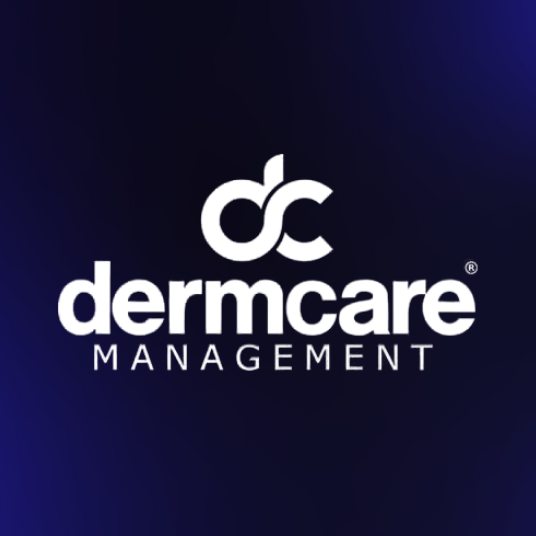
Driving Growth for Dermatology: How to Craft a Winning Marketing Strategy for Your House of Brands with DermCare Management’s Steve Estévez
Dive into the dynamic world of dermatology marketing with our latest episode of Ignite, featuring Steve Estévez, VP Marketing at DermCare Management! Steve joins Cardinal CEO, Alex Membrillo, to share his insights on leveraging marketing wins to solidify brand identity, the impact of COVID on search marketing strategies, and the importance of a robust online presence. Tune in to Ignite for an enlightening conversation that will leave you with actionable insights and a fresh perspective on the future of dermatology marketing in 2024 and beyond!

Strategic Healthcare SEO in 2024: Improving the Digital Patient Experience
Explore the evolving landscape of SEO for healthcare organizations in the digital age on this episode of Ignite! Our hosts, CEO, Alex Membrillo, and VP of Earned and Owned Media, Rob Sauter share actionable strategies for enhancing the digital patient experience and ensuring privacy. Uncover the collaborative power of paid and earned media to boost reach, visibility, and reduce acquisition costs. Stay ahead in 2024 by integrating SEO into your marketing mix for sustainable growth.

Explore the Digital Landscape of Behavioral Health with Joe Crosby of Odyssey Behavioral Healthcare
Join Cardinal’s CEO, Alex Membrillo, and Director of Digital Marketing at Odyssey Behavioral Healthcare, Joe Crosby, for an enlightening episode of Ignite that unveils the innovative strategies driving Odyssey's success across 9 states. Whether through localized SEO initiatives or nationwide residential care campaigns, Odyssey's digital approach is crafted to shepherd individuals through their distinct paths to healing. Join us to uncover how Odyssey is reshaping healthcare marketing, ensuring accessible support for those in need.

Boost ROI & Patient Trust: How to Build & Implement a HIPAA-Compliant Tech Stack
Join us this week on Ignite to explore how healthcare marketers tackle the challenge of lead attribution and marketing ROI within HIPAA constraints. Our hosts, CEO, Alex Membrillo and Chief Strategy Officer, Rich Briddock discuss how to build a compliant technology stack using tools like call tracking and analytics. They also explore how such a stack enhances lead quality, compliance, patient insights, and revenue growth, ensuring alignment with legal and ethical boundaries. So tune in as our hosts reveal the secrets to building a robust, HIPAA-compliant martech stack that not only protects you from legal woes but also streamlines your operations and maximizes your marketing efforts.

Innovative Marketing in Addiction Treatment: Insights from BrightView’s Kevin Dugan
Unlock the secrets of effective channel mix and content marketing strategies in the latest episode of Ignite! Kevin Dugan, an industry leader in addiction treatment and Director of Content Marketing at Brightview, joins CEO, Alex Membrillo to share decades of experience in B2B and content marketing. Explore Brightview's compassionate, patient-centric approach, breaking stigmas and fostering community connections. This episode offers tactical insights and heartfelt stories that inspire and inform marketing professionals and those passionate about making a difference. Don't miss out on this compelling conversation that's changing the face of addiction treatment marketing.
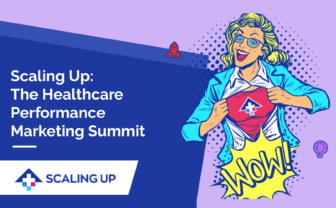
Exploring Scaling Up and The Future of Healthcare Marketing in 2024
Step into the future of healthcare marketing as CEO, Alex Membrillo, and Chief Growth Officer Lauren Leone, recap Scaling Up: The Healthcare Performance Marketing Summit! As we usher in 2024, discover the groundbreaking insights and trends that are shaping the industry. Cardinal's mid-December summit was more than just an event; it was a convergence of marketing maestros sharing deep dives into their strategies for the upcoming year. Missed out? Fear not! Tune in to hear all the juicy details, from the power of MOPS—marketing and operations unity—to the art of omni-channel mastery and more!
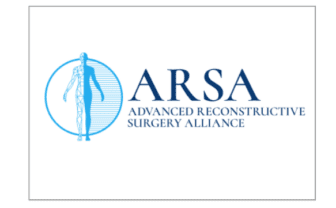
Driving Remarkable Results for Advanced Reconstructive Surgery Alliance
Discover Cardinal’s successful marketing strategy for Advanced Reconstructive Surgery Alliance (ARSA), a unique MSO with individual brand identities. From understanding ARSA's challenges and goals to discussing our meticulous approach to ad structuring, keyword strategy, and landing page optimization, CEO, Alex Membrillo, and Paid Media Supervisor, Ruchi Patel, unveil how our strategies led to remarkable results and the ongoing marketing support we’re providing.
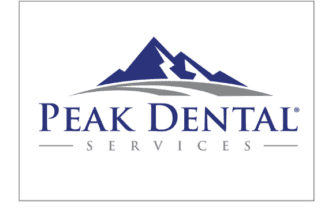
Unraveling PPC Strategy in Multi-Brand Healthcare: A Peak Dental Case Study
Are you ready to revolutionize your multi-brand healthcare marketing strategy? Dive into the latest episode of Ignite, where CEO, Alex Membrillo, sits down with Paid Media Supervisor, Ruchi Patel, to unravel the complexities of managing Peak Dental, a dental service organization (DSO) with 60+ locations. Discover how to navigate the intricacies of PPC and SEO for a house of brands and learn tactics that can be applied to any multi-brand healthcare specialty. From leveraging patient data to fine-tuning your ad spend by zip code, we're sharing insights that can transform your patient acquisition game. Whether you're a marketing pro for a DSO or looking to scale your healthcare business, these strategies are tailored to maximize efficiency and drive high-quality leads. Tune in to Ignite and get ready to elevate your digital marketing strategy to new heights!

Full-Funnel Healthcare Marketing: How to Engage Patients at Every Step of Their Journey
Join us this week on Ignite as CEO Alex Membrillo and Chief Strategy Officer Rich Briddock dive into the complexities of HIPAA-compliant full-funnel advertising strategies. Tune in to discover insights on crafting engaging content tailored to each stage of the marketing funnel, along with strategies to enhance patient acquisition and elevate conversion rates.

Healthcare Marketing Trends for 2024: A Roadmap to Success
We are halfway through Q4 and 2024 is right on the horizon, which means it’s time to solidify your marketing strategy before the new year. In this highly anticipated episode of Ignite, CEO, Alex Membrillo and Chief Growth Officer, Lauren Leone focus on the top healthcare marketing trends for 2024, offering their insights and recommendations for success. The two discuss industry changes like a shift away from mergers and acquisitions and towards de novos, HIPAA compliant marketing and alternative analytic solutions, the importance of a full-funnel approach in advertising, and why healthcare groups should prioritize patient retention and reactivation. So tune in as Lauren and Alex dive into the major themes and trends shaping the healthcare industry.

Unlocking SEO Success: How’s Google’s Evolving SERP is Impacting Healthcare
Explore the transformation of Search Engine Results Pages (SERPs) and its impact on healthcare marketing with SEO expert, Jacquelyn Green, and CEO Alex Membrillo. In this episode of the Ignite, the two discuss Google's response to changing knowledge acquisition trends and increasing competition from platforms like ChatGPT, TikTok, and Reddit. So tune in to learn how the SEO landscape is evolving and the importance of adapting to it.

The Secret to Patient Retention: How to Engage and Reactivate Your Patients
In this episode of the Ignite, Chief Growth Officer, Lauren Leone, and Director of Patient Retention, Jordan Parrish, stress the significance of patient retention in the healthcare industry. They emphasize the cost-effectiveness of retaining existing patients and tackle common challenges, such as appointment cancellations. The discussion underscores the role of pre-appointment automation, personalized communication, and AI technology in improving patient engagement.

Mastering the Dental Marketing Maze: Insights from Industry Expert Cindy Berger of Shore Dental Partners
This week on Ignite, Cindy Berger, an experienced medical marketer, joins Cardinal CEO, Alex Membrillo, to share her remarkable journey, which began with selling shoes online and eventually led her into the dynamic world of Dental Service Organizations (DSOs). This episode delves into the DSO landscape, emphasizing its consumer-centric approach and the myriad advantages it offers to dental care. So tune in as our hosts explore the intricacies of marketing in the DSO realm and unravel the challenges and strategies that come into play.

Optimizing Your Media Budget: Strategies for Healthcare Groups to Maximize ROI
On this episode of Ignite, Paid Media Supervisor, Ryan Dobrin, joins CEO, Alex Membrillo for a discussion about optimizing media budgets. The episode covers common mistakes made by clients and agencies, emphasizing the importance of tracking the right metrics and setting up campaigns correctly. The two also highlight the significance of tracking conversions that impact revenue, such as new patient acquisitions and booked appointments. So tune-in to gain valuable insights and make the most of your media budget.

Building Trust and Brand Loyalty in Healthcare: Insights from Vicki Luttrell
Join us for an engaging episode of Ignite as we explore in-person events, AI-driven brand building, and the intricacies of healthcare marketing. Hosted by Cardinal CEO, Alex Membrillo, this episode features a special guest, Vicki Luttrell, a seasoned expert with over two decades of experience in communications and marketing. So tune in to discover the power of in-person connections and learn valuable insights on aligning your marketing, PR, and communications teams to craft a unified brand message that resonates with your target audience.

Overcoming SEO Challenges: Insights for Multi-Location Healthcare Organizations
This week on Ignite, our hosts, CEO Alex Membrillo and Director of SEO Jacquelyn Green, dive into the complex realm of SEO. The experts discuss common hurdles that confront multi-site healthcare organizations and hinder their ability to rank on Google. Tune in to hear valuable insights and practical recommendations that will empower you to overcome challenges, optimize your strategy, and drive remarkable results.
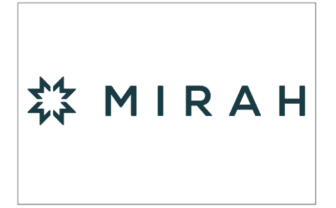
Transforming Behavioral Health and Improving Patient Outcomes with Mark Potter of Mirah
Join us on Ignite as we dive into the world of behavioral health, the rise of measurement-based care (MBC) and practical strategies for implementing MBC in a competitive market. In this episode, Mark Potter, the CEO of Mirah, joins Cardinal CEO, Alex Membrillo, to share how Mirah is working to improve behavioral health outcomes.

Future-Proof Your Marketing Strategy: Q3 Planning for Long-Term Success
Are you ready to take your business to the next level in the coming year? Don't wait until Q4 to start planning! Join us on Ignite as CEO, Alex Membrillo, and SVP of Healthcare Marketing, Lauren Leone, dive into the crucial steps you need to take right now to ensure a successful future. The two will guide you through the process of analyzing your data, setting goals, and crafting a compelling story to secure the budget you need. Discover the latest technologies and strategies to track your progress, impress your C-suite, and achieve your desired outcomes. Don't miss out on this opportunity to get the most out of Q3!

Dominate the SERP: How LSAs Are Transforming Healthcare Marketing
Are you a healthcare professional looking to enhance your online presence and engage with patients effectively? Discover the recent impact of Local Services Ads (LSAs) on the healthcare industry and unlock the potential of Google's new ad type with strategic insights. On this episode of Ignite, our hosts, CEO, Alex Membrillo, and Director of Paid Media, Evan Ilgenfritz, delve into understanding LSAs, their key differentiators from traditional Google Ads, and how they can help healthcare groups dominate more real estate on the Search Engine Results Page (SERP).
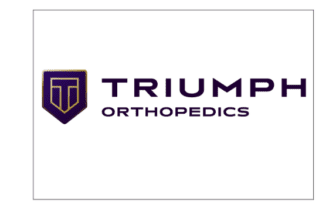
Marketing’s Role in Orthopedics with Haley Hodgkins of Triumph Orthopedic Partners
Discover the importance of relationship nurturing, direct-to-consumer marketing, and the power of Google reviews in boosting patient activation. Learn about the future trends in orthopedics, including the shift towards Ambulatory Surgical Centers and the rise of value-based care. Tune in for an insightful discussion on the intersection of healthcare and business, and gain valuable knowledge on managing and marketing an orthopedic group.
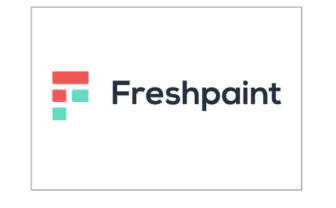
Balancing Healthcare Marketing & HIPAA Compliance: Insights from Ray Mina of Freshpaint
Dive into the complexities of adhering to HIPAA compliance in the age of digital marketing with Ray Mina, Head of Marketing at Fresh Paint and Cardinal’s SVP of Strategy and Analytics, Rich Briddock.

Patient Prism: Revolutionizing Healthcare Through AI & Innovation, with Amol Nirgudkar

Healthcare Listing Platforms: Are They Worth the Cost?
Healthcare listing platforms have become an integral part of the patient acquisition strategy for many providers. From providing a centralized platform for patients to discover and connect with healthcare professionals to showcasing reviews, ratings, and other essential information, these platforms have transformed the way patients search for and select healthcare providers.

Uncovering the Nuances of High Acuity and Low Acuity Healthcare Marketing
Join us on this episode of Ignite as our hosts, CEO, Alex Membrillo, and SVP of Healthcare Marketing, Lauren Leone discuss high acuity and low acuity marketing in the healthcare industry. Gain valuable insights into the patient journey, effective advertising techniques, compelling value propositions, optimal marketing channels, and targeted approaches towards healthcare professionals. You’ll also learn the latest geo-targeting regulations that are reshaping the landscape of healthcare marketing.

Unleashing the Power of Call Analytics in Healthcare with Charlie Winn, Chief Revenue Officer at Liine
Call analytics has become an indispensable tool in the healthcare industry and Liine is at the forefront of this revolution. On this episode of Ignite, our hosts, CEO, Alex Membrillo, SVP of Strategy and Analytics, Rich Briddock and Chief Revenue Officer at Liine, Charlie Winn, discuss the significance of call analytics for healthcare and share insights on how Liine helps providers optimize their operations, enhance the patient experience, and refine their marketing strategies.

From Screen to Patient: CTV and OTT Advertising in the Healthcare Industry
On this episode of Ignite, our hosts, CEO, Alex Membrillo, and SVP of Strategy and Analytics, Rich Briddock dive into the world of CTV and OTT advertising and the role it plays in the healthcare industry. So, tune in to learn how to incorporate this channel into your media mix and about the part it plays in the healthcare patient journey.

Patient-Centric Marketing: How to Define and Reach Your Ideal Audience
Even the most creative marketing campaigns can fail if it doesn't reach the intended audience. So, how do you ensure your brand shows up when patients seek care? On this episode of Ignite, our hosts, CEO, Alex Membrillo, and SVP of Strategy and Analytics, Rich Briddock dig into best practices for defining your audience, common challenges healthcare groups face, and how to leverage machine learning.

Deep Dive into Behavioral Health Marketing: A Look At Industry Trends and Strategies Part 2
The behavioral health industry is expansive and encompasses a wide range of services. From inpatient treatment to ABA therapy, Lauren and Rich discuss how marketing strategies and priorities shift across the service spectrum. So tune into the final episode of this two-part series, to learn how to engage with patients and drive more leads throughout the mental health marketing funnel.

Deep Dive into Behavioral Health Marketing: A Look At Industry Trends and Strategies Part 1
In honor of Mental Health Awareness Month, our Ignite hosts Lauren Leone, SVP of Healthcare Marketing, and Rich Briddock, SVP of Strategy and Analytics, dig into the latest marketing trends and best practices within the behavioral health industry. In episode one of this two-part series, the behavioral health experts discuss everything from how the industry has evolved in recent years and what marketing strategies no longer work to the impact of recent FTC complaints and the importance of patient education.
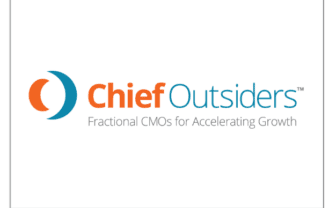
How to Keep the Marketing Engine Running with Paul Sparrow of Chief Outsiders
On this episode of Ignite, Cardinal CEO Alex Membrillo, and Area Managing Partner & CMO at Chief Outsiders Paul Sparrow, go back to the basics and dissect the marketing engine. Too often, healthcare marketers jump directly into patient acquisition tactics without paying attention to the organization’s overall objectives.
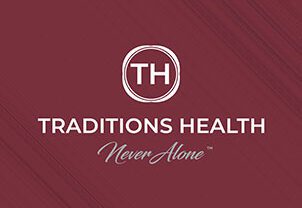
Building a Strong Brand: How Lynn Robbins is Guiding Traditions Health’s Marketing Strategy
With 30+ years of healthcare experience, Lynn Robbins, Vice President of Marketing at Traditions Health joins Cardinal CEO, Alex Membrillo, to share her insights into the world of home health, palliative care, and hospice marketing. From conducting market research to navigating staffing shortages, the two healthcare marketing experts cover it all. So, tune into this episode of Ignite to hear the latest trends and challenges within the industry and get an inside look into Traditions Health’s marketing strategy.

How the FTC’s Recent Rulings Affect Healthcare Marketing
The world of healthcare marketing is changing. Recent FTC complaints against GoodRX and BetterHelp, have caused the government to refine guidelines around the type of information that healthcare companies are allowed to share with marketing technology providers. So, what does this mean for healthcare advertisers?

Insider Tips for Optimizing Your Healthcare Call Center with Michele Santagata
To provide a positive patient experience, healthcare organizations need to consider every aspect of the patient journey, including the call center. While digital marketing can attract potential patients, having a fully-optimized patient acquisition strategy means nothing if your call centers aren’t handling incoming leads appropriately.

Building Your Analytics Platform: Essential Tools for Healthcare Marketers
Leveraging the power of analytics to your advantage empowers smarter campaigns and supercharges growth. However, increasing data restrictions, new technology platforms, and the complexity of multi-site healthcare marketing have made it more difficult than ever to gain insight into marketing and business performance.
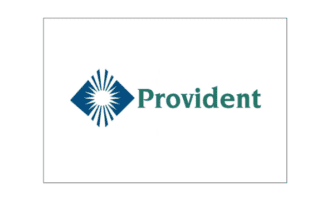
Maximize Your Practice Valuation: How to Build A Strong Foundation with Provident Healthcare Partners
If one of your goals is to sell your practice in the future, now is the time to start planning. To ensure the highest possible valuation and a smooth transaction, you must have a strong operational, fiscal, and digital foundation. On this episode of Ignite, Craig Sager and Steven Grassa of Provident Healthcare Partners join Cardinal’s Alex Membrillo and Lauren Leone to explore how to professionalize your business and build that foundation.

Navigating the GA4 Migration: The Future of Healthcare Analytics
Healthcare organizations rely on accurate data to make strategic marketing decisions and gain a better understanding of the patient journey. With Google announcing the end of Universal Analytics in favor of Google Analytics 4, healthcare groups are encouraged to migrate to the newer platform ASAP, before the automatic switch on July 1, 2023. Though GA4’s capabilities are beneficial, data is only stored by default for 2 months. That’s why it’s important for healthcare groups to stay informed to ensure a seamless transition with no lost data.

ChatGPT and Bard: The Impact of AI Technology on Healthcare SEO
The popularity of ChatGPT has been widely recognized, leading Google to create Bard, their own version of the chatbot. Bard hasn't officially launched yet, but the new AI is expected to have a huge impact on the healthcare industry and search engine optimization. It's important to note that while AI technology is a helpful marketing tool, to provide the most valuable content to patients, human strategy should remain at the forefront.

Don’t Turn Your Back on Existing Patients: How to Boost Revenue with Reactivation
Typically, healthcare marketers often stay hyper-focused on new patient acquisition. Unfortunately, this stance means that many groups leave money on the table by ignoring a much warmer audience— the existing patient.
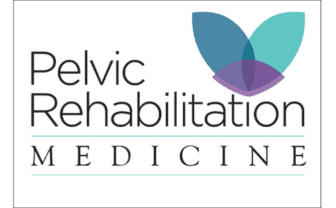
Empowering Patients through Education: The Key to Successful Healthcare Marketing with Theresa Porcaro of Pelvic Rehabilitation Medicine
Patient education plays a vital role in healthcare marketing. By creating educational, authentic content, healthcare providers can better engage patients and encourage them to take a more active role in their own care. This leads to more accurate diagnoses, better health outcomes, and improved patient satisfaction.

Navigating the Healthcare Landscape: Mapping the Patient Journey
Patient journey maps are a powerful tool that can revolutionize healthcare marketing. By understanding the different stages and touchpoints of a patient's experience, healthcare marketers can gain valuable insights into the challenges and opportunities they face. This leads to higher patient engagement, better outcomes, and a more comprehensive marketing approach.

Adapting to Google’s Push Towards Automation: The Importance of Broad Match
Google is actively promoting the use of automation and AI in its advertising solutions. This shift is causing traditional "exact match" to become obsolete and the limitations of other keyword matching options are becoming increasingly apparent. To keep up with this change, advertisers are being pushed to use "broad match" type in their campaigns.
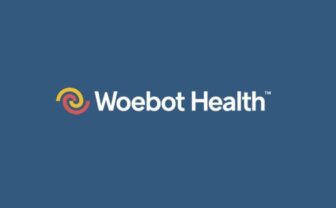
AI and Mental Health: The Future of Care and Treatment featuring Chris Hemphill, Woebot Health
AI technology is revolutionizing the way we approach mental health, including, increasing access to care, and improving patient outcomes. Join Cardinal’s CEO, Alex Membrillo and Sr. Director, Commercial Intelligence at Woebot Health, Chris Hemphill as they take an in-depth look at the current and future state of AI in mental healthcare and the impact it has on the healthcare industry as a whole.

Enhancing Lead Quality in Healthcare: The Google Ads Must-Do’s
Not every lead is a good lead, especially in the healthcare vertical. Without robust lead quality control measures, incoming leads may end up not converting into booked appointments, which wastes time and money. To increase lead quality, lead-to-sale conversion rates, and revenue in a CRM-less world, healthcare marketers must take control of their Google Ads accounts.

Healthcare Marketing on TikTok: The Future of Patient Engagement
Healthcare consumer behavior is changing. Instead of going to a doctor, many turn to social media for help. According to a survey done by Charity RX, 1 in 5 Americans will consult TikTok for healthcare advice before their doctor. When it comes to sensitive health topics, people report feeling more comfortable seeking information virtually. To reach and engage this growing population, more healthcare providers are using TikTok as part of their marketing mix.

Balancing Volume & CPA Priorities: The Dangers of Focusing on One Goal
There are two common goals in healthcare marketing: increasing patient volume and decreasing cost per acquisition (CPA). As we enter the new year, it’s important for organizations to find a balance between the two when determining their marketing strategy.

How to Reach Patients in 2023: Insights from Michele Hart, BostonSight
From print marketing to Google Ads and everything in between, Cardinal’s CEO, Alex Membrillo, and Director of Marketing and Communications at BostonSight, Michele Hart, cover all aspects of the marketing mix. Join the two healthcare marketing experts as they discuss: BostonSight’s marketing strategy for 2023, the impact a recessive economy has on the non-profit, tactics for reaching new providers and patients, and tips for a small budget.

PPC & Google Ads in 2023: The Top Trends Your Healthcare Organization Needs to Know
With 2023 right around the corner, it’s time to consider the PPC & Google Ads trends that will have the biggest impact on search marketing and patient acquisition in the new year. The PPC ad landscape is changing as new channels and tools emerge. Advancements in AI and algorithmic have led to automated systems that can now deliver significant, never-before-seen capabilities to advertisers in the healthcare services space. While these newer systems provide a great deal of value, human oversight is still critical to ensure that leads actually turn into booked patients.

Top SEO Trends Every Healthcare Organization Needs to Know in 2023
As the end of the year approaches, now it is the time to investigate the search engine optimization (SEO) trends that will make impact healthcare marketing in 2023. Google is continually refining its ranking algorithm, which means healthcare marketers must stay informed of the latest trends if they want to build a dependable patient pipeline. Join Cardinal’s industry experts as we analyze where search is now and where it's headed in the new year.

Is SEO Worth It? How to Measure SEO’s Impact on Revenue
It's vital for healthcare groups to build an organic presence on the search engine results page (SERP) if they want to reach potential patients. To get on the first page, they need to invest in SEO. However, many organizations struggle with SEO because they don't see an immediate return on their investment. SEO takes time to gain top ranking positions. Because of this, SEO campaigns are often cut during times of economic uncertainty.

Robust Content: How to Improve SEO Rankings and the Patient Experience
Compared to other search optimizations, the expansion of thin content can make the biggest impact for healthcare providers. Not only does robust, in-depth content improve patient experiences, but it also makes Google happy—ultimately improving rankings.

Do You Know What Your Patients Want? How to Create a Patient-centric Keyword Strategy
Keyword research is essential to any successful SEO campaign. To conduct effective keyword research and develop a strong keyword strategy, it’s vital that healthcare organizations have a deep understanding of their patients and how they search for information online. Understanding search intent can ensure that your content aligns with what patients are looking for.

Brand Architecture: Which Strategy is Right for Your MSO?
When a new management services organization (MSO) is formed and consolidates healthcare groups or later acquires additional brands, it's crucial that they have a solid multi-brand strategy. The discussion between having a house of brands vs. one brand structure is prevalent throughout the healthcare industry. To choose the best strategy, it’s essential to understand each option.

Google Helpful Content Update: How it Impacts Healthcare
Google’s latest “Helpful Content” update continues to prioritize user-centric content over articles written only for its algorithm. As a result, it has become increasingly important for healthcare organizations to have a robust full-funnel content strategy that answers patient questions at each stage of the patient journey while continuing to implement SEO best practices.

Get Ready For 2023: How to Plan Your Digital Marketing Goals
As Q4 begins, now is the time to evaluate your media performance and develop tangible goals to guide you in the new year. To create well-defined goals that guide your digital marketing strategy, it is important to understand why goal setting is important and what steps are needed to achieve them.

Facebook Advertising In Healthcare: Is It Still Worth It?
The release of iOS 14 had a major impact on Facebook advertisers. The update removed data availability and made it harder to target and build audiences. However, despite changes to the platform and new restrictions, Facebook is still a valuable tool for healthcare marketing.

How to Stop Wasting Money on Google Ads
Due to current economic uncertainty, many healthcare groups have become more cautious with their budgets and are looking for ways to reduce ineffective marketing activities. By optimizing their PPC campaigns, healthcare organizations not only eliminate unnecessary spending but also improve campaign performance.
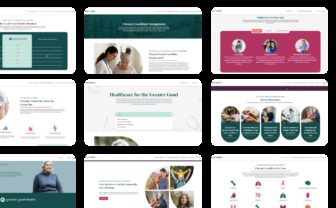
How to Alleviate Staffing Shortages by Leveraging Marketing Technology
The healthcare industry continues to face ongoing labor shortages which is resulting in employee burnout, poor operational efficiency, and low capacity limits. In order to mitigate the impact of staffing shortages, it is important to understand how marketing technology can help improve operational efficiencies and prevent turnover.

Healthcare Recruitment Strategies to Grow Your Provider Pipeline
Due to nationwide staffing shortages, the healthcare industry continues to struggle with provider recruitment. An organization's ability to attract and retain skilled physicians and healthcare workers impacts its growth and the patient experience. The first step in developing a solid talent pipeline is creating a strong outreach program.

How to Navigate Budget Cuts and Economic Uncertainty
No matter the economic climate, there is value in understanding potential economic pressures and market challenges, as well as having a plan in place to overcome them. How can healthcare marketers create a business strategy that will maximize their budget and keep them aligned with leadership?

Healthcare Marketing Analytics: How to Track Growth
When a multi-location healthcare group is trying to grow, having an effective marketing analytics framework is essential. How can organizations with ambitious growth goals set themself up for good reporting?

Demand Capture vs Demand Generation: When to Make the Switch
In order to meet ambitious growth goals, healthcare groups need to invest in demand generation media strategies. Before healthcare groups can begin demand generation efforts, they must first have a strong demand capture strategy.

Scaling MSOs Post-Acquisition: How to Build A Repeatable Marketing Strategy
When bringing a new MSO online, private equity groups and their partners need a repeatable marketing strategy that they can easily scale across acquisitions. Proper planning at this stage ensures that they’ll have a digital marketing foundation that can grow with them and allow them to maximize efficiencies.

De Novo Marketing Strategy to Maximize Profitability on Day One
As your healthcare group expands, you need de novo offices to be profitable from day one. This means it is imperative to have an effective marketing strategy before your new office opens. But where do you start?

Your First 90 Days: What Healthcare Marketing Leaders Need to Know
The first 90 days are pivotal to all new healthcare chief marketing officers (CMOs). How can you ensure that you’re in alignment with your executive team and meeting expectations?

The Marriage Between AI and Digital Advertising
Machine learning and algorithms continuously improve to help digital advertisers reach and engage the right audience. The key is finding the perfect balance between artificial intelligence and marketers’ ingenuity. They each have their unique strengths and role in developing effective digital advertising campaigns.

How to Create Ads That Don’t Suck
If you are a digital advertiser, you know how important ad creative is to the performance of your campaigns. When managing your ad creative you must juggle different headlines, images, text, and CTA options for different placements, across different devices. But great ad creative doesn’t start there. It starts by understanding the patient journey, their motivations and challenges, and providing real value through your offering.

5 Keys to Effective Paid Search Strategies That Generate More Patients
Healthcare organizations need to move their paid search campaigns from an efficiency-based optimization strategy to an effectiveness-based optimization strategy.

HIPAA Compliant Marketing with First Party Data
First party data is information collected directly from the healthcare consumer. With care and an eye on HIPAA compliance, healthcare marketers can use this data to better understand their consumers’ behavior, demographics, interests, interactions, and more.

6 SEO Principles That Make It Easy for Healthcare Consumers to Find You
It’s no secret - you need to be ranking highly on Google to make sure healthcare consumers can find you. But you also need to have a solid website that is built to support search engine optimization (SEO). Here are the 6 principles to follow for creating your dream website, the best technologies to use for building your website with SEO in mind, and how UX can impact your website’s performance.

How to Get Patients To Your Door: Developing Your Healthcare Offer
What do your patients care about? That is the first thing you need to think of when developing an offer for your healthcare organization. Once you’ve narrowed that down, you can then start building out your unique offering(s).

Top Challenges Healthcare Marketers Faced in 2021
Marketing for healthcare organizations and medical practices presents a set of challenges unlike any other industry. A thorough understanding of how to overcome these hurdles is required for success in healthcare marketing. Here's how the iOS14 update affected healthcare marketers and Facebook Ads; the hiccups high-growth healthcare organizations face while factoring in local-level needs; and why you should use healthcare marketing best practices to scale your business to new heights in 2022.

Healthcare Marketing Trends Continuing in 2022
The end of 2021 is approaching quickly, and we are entering that time of year where healthcare organizations start planning Q1. What should healthcare marketers continue to implement in 2022, what marketing practices should they adopt, and what should they leave in 2021?

Healthcare Marketing Trends Continuing in 2022 – Part 2
Can you believe the year is almost through? It’s true, and it’s time to start planning for 2022. Your competitors certainly are. As we look to 2022 and beyond, here are the digital marketing trends we’re keeping an eye on.

Personalization in Healthcare Marketing
Personalization is the key to creating lasting relationships with patients. And while many were slow to adopt this mindset, most healthcare providers now know what they must do. Engaging today’s patients requires knowing and accommodating each patient’s communication preferences, personal needs, and healthcare-shopping habits. Providers who deliver personalized experiences are rewarded with more personal patient connections, longer relationships, and increased revenue.

How to Build The Perfect Healthcare Marketing Team
Structuring your marketing team is a huge undertaking. Marketing is an ever-changing industry, and as the industry changes, so do team structures and job roles. Depending on the size of your healthcare organization, it might make sense to keep certain roles in-house. Others might need to take some in-house marketing struggles and outsource them to an agency. But how do you decide what to keep in-house and what to outsource?

Top 3 Marketing Mistakes Healthcare Organizations Make
Too often, healthcare organizations waste time and money on the wrong digital marketing strategies. They focus on the wrong channels, use outdated best practices, neglect to test, or chase the latest hyped-up marketing strategy. Here are the top three mistakes healthcare marketers commonly make—over-segmenting their Google Ads account, investing too much in organic social, and halting their SEO investment—and how to avoid making them again.

Building Your Patient Pipeline Beyond Referrals
The pandemic disrupted the hospital and doctor referral pipeline, and a once steady pipeline of referrals dried up. While referrals have resumed, the pandemic revealed the vulnerability of relying on one patient source. Our hosts discuss how defining your USP, diversifying your marketing strategy, and investing in other digital marketing channels can help you build a more robust patient pipeline.

How to Create Transformative Patient Experiences
In fiercely competitive healthcare markets, your patient experience can differentiate you from other providers. Healthcare consumers expect the same level of convenience and service they find in other aspects of their lives. Our hosts discuss how healthcare providers can create exceptional experiences across the patient journey, in both digital and in-person interactions. They dig into the technologies that reduce friction, the types of educational content patients seek, and how to craft communications that connect with patients, build trust, and deepen relationships.

The CRO Process
If you’re generating a steady flow of website traffic, but your lead volume is low, your website experience might be to blame. Healthcare consumers have high expectations and will quickly bounce if they don’t find what they need. If you want to improve your conversion rates and generate more leads, you should consider conversion rate optimization (CRO). By aligning your user’s goals with your website experience, you can remove barriers preventing them from taking action.

How Link Building Can Help You Claim Page One Ranking
Why does link building matter for your healthcare organization? You don’t just need patients to find you; you need Google to find you and source you as a credible, trustworthy, and authoritative site. Here are a few strategies and tactics healthcare marketers can use to develop their link building portfolio, boost their rankings, and increase their visibility on Google.

Why Being The Best Isn’t Enough: Finding Your USP
Defining your unique selling proposition (USP) is the first step in determining what makes you different and why patients should choose to visit your practice. If you can't identify your USP, you'll have a hard time convincing patients to visit your practice instead of your competitors.

AI and The Future of Digital Advertising
To improve campaign performance, Google’s algorithmic strategist developed Smart Bidding. It uses machine learning to analyze millions of signals to predict which auction will lead to better conversion rates. With that insight, it can set the right bid for the auction and help you get more from your marketing budget. While Smart Bidding has been around for several years, many advertisers have resisted adoption. But we believe Smart Bidding is the future of digital advertising.

Build a Foundation for Better Marketing Measurement
Why are you sending a request for proposal (RFP) to a marketing agency? Your healthcare organization is probably looking for a quality partner to enhance your strategy and help you get patients the care they need. Here's how to create a solid RFP, what research you should do before looking for a partner, how an agency can detect a genuine RFP, and how to find an amazing marketing agency who fits your needs.

How to Create a Marketing Agency RFP
Why are you sending a request for proposal (RFP) to a marketing agency? Your healthcare organization is probably looking for a quality partner to enhance your strategy and help you get patients the care they need. Here's how to create a solid RFP, what research you should do before looking for a partner, how an agency can detect a genuine RFP, and how to find an amazing marketing agency who fits your needs.

Google I/O – Conversational Search
At the Google I/O Developer Conference in May 2021, they released two new conversation technologies: LaMDA (Language Model for Dialogue Applications) and MUM (Multitask Unified Model). They promise to change the way people search and improve search results for long-tail queries that Google hasn’t seen before.

Facebook Ads: Take Your Social Strategy to the Next Level
If you want to maximize your healthcare organization’s reach, build brand awareness, and nurture prospects until they’re ready to visit your office, then you need to consider Facebook advertising.

Top 3 Marketing Technologies Every Healthcare Organization Needs
For an industry that depends on the ability to reach people and provide care, healthcare still struggles to keep up with the latest digital marketing trends. Marketing technologies can help your healthcare organization elevate the patient experience and drive serious bottom-line results.

Back to Basics: Building Your Healthcare SEO Strategy
If healthcare organizations want to rank on the first page of Google, they need a solid SEO foundation. That means having a scalable, organized, and efficient website that supports your content strategy and a strong backlink portfolio that tells Google your website is reputable.

The Future of Telehealth: a Hybrid Approach
The COVID-19 pandemic has fundamentally changed the way people receive care, and an unprecedented number of providers and patients have tried telehealth. As we adjust to post-pandemic life, many are questioning telehealth’s staying power. Will consumers continue to use virtual care?

Intro to CRO: How Understanding Human Behavior Can Improve Conversion Rates
Conversion rate optimization (CRO) is more than just design or analytics. It's about understanding human behavior centered around motivation. As a healthcare marketer, you want to make it easy for a user to convert into a patient. By creating ads, landing pages, and content that appeals to people’s aspirations, you’ll be able to persuade them to take the actions you want. See how understanding human behavior can help you optimize conversion rates at your healthcare organization and increase patient acquisition.

Call Analytics: Listen to Your Patients to Improve Conversions
In the healthcare industry, inbound phone calls have always played a significant role in the patient’s journey. By tracking calls with a dynamic solution such as CallRail, you can not only improve your practice operationally, but you can also use data synced to Google Ads and Google Analytics to optimize your ad campaigns in real-time. Hear how healthcare marketers can use call analytics to get better marketing results, improve their business, and what to look for once they implement it.

How Consumer Search Behavior is Evolving
As search algorithms have become more sophisticated and able to provide better results, user behavior has evolved. Instead of searching with fragmented keywords, longer, more conversational queries are now the norm. CEO, Alex Membrillo and SEO Director, John McAlpin, discuss how user behavior and semantic search have evolved over this past year and how the pandemic has fueled more changes.

2021 Google Ads Update: Say Goodbye to Broad Match Modifiers
In July, Google Ads will be rolling out a new update for its platform. They are taking away broad match modifiers and replacing them by expanding phrase match. By doing so, advertisers will be able to target a more-specific audience; their ads will match the intent a user is searching for. Listen as our hosts discuss the ins and outs of the Google Ads update and the reasons behind this new shift.

The State of Healthcare Marketing in 2021
In the past year, the healthcare industry has experienced tremendous uncertainty and economic instability. Many questions remain on what the future of healthcare looks like and how marketers can connect with healthcare consumers. Our hosts dig into the State of Healthcare Marketing in 2021 survey results and discuss the digital marketing strategies that will help healthcare organizations bounce back in 2021.

Google Plans Big Moves in 2021. Are You Ready?
Google has big things planned for 2021. Several updates that have been postponed due to the pandemic are finally making their debut. Cardinal’s Director of SEO, John McAlpin, reviews Google’s mobile-first indexing and ranking shift and the upcoming Core Web Vitals update.

Are Your Facebook Ad Campaigns Ready for iOS14?
The battle that has been brewing between Apple and Facebook is coming to a head and marketers need to prepare their digital advertising campaigns. As Apple’s iOS operating system upgrades to version 14, it is introducing privacy policies that will affect how Facebook handles ads.

How To Dominate Google With PPC + SEO
Smart marketers know it’s not SEO versus PPC; you need both. See how these two foundational tactics work together to increase brand awareness and your visibility on search.
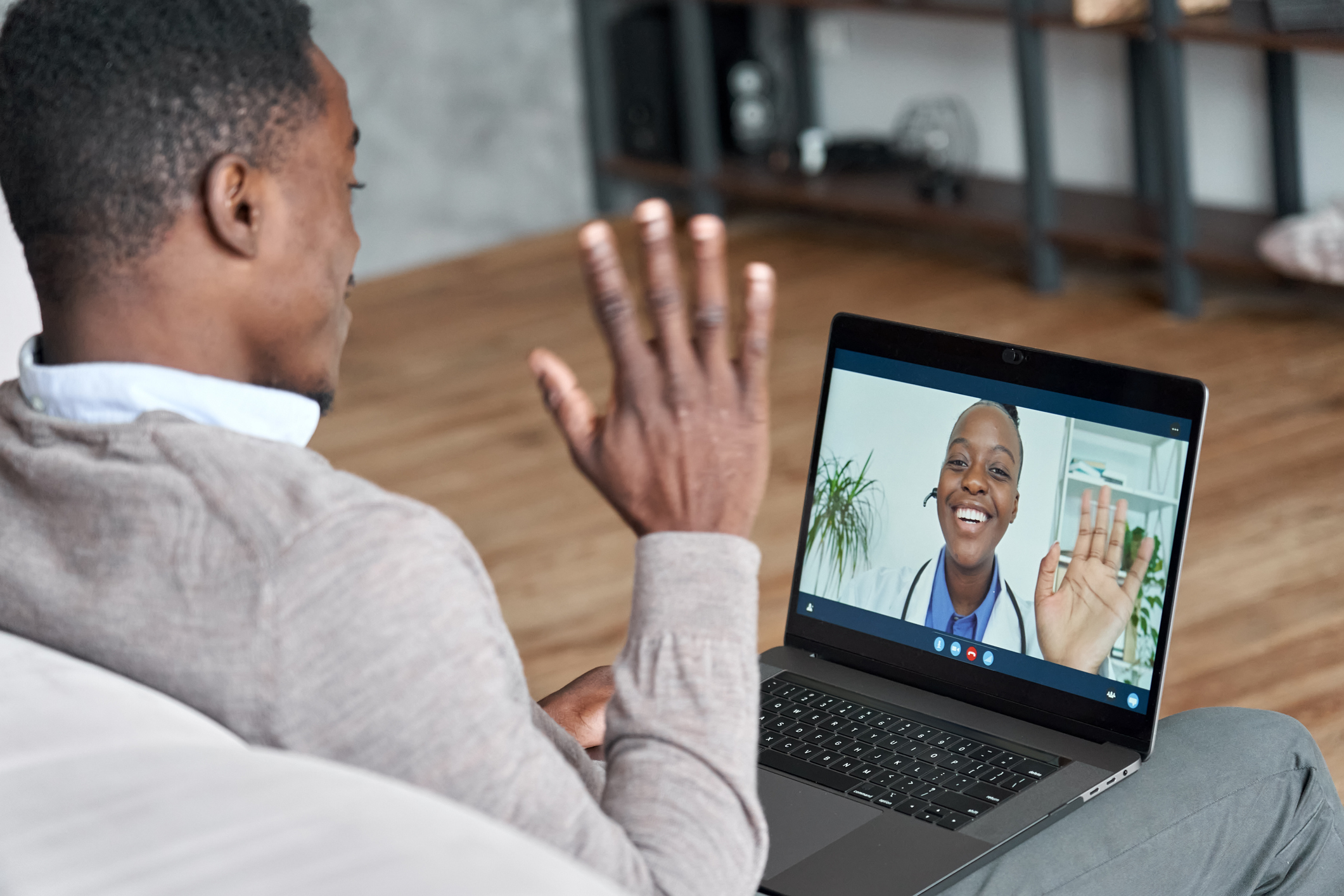
The Rise of Digital In Healthcare Marketing
This episode of Ignite takes a look at the biggest changes that have occurred in healthcare marketing in the past year. Our hosts discuss how the pandemic has accelerated virtual care adoption, shifted marketing messaging, and pushed more healthcare organizations online as they try to recoup patient volume.

Why You Can’t Neglect Your Digital Reputation
Your online reputation is too important to neglect. It influences patients’ perceptions of your brand and determines if they’ll choose your healthcare organization when conducting research online. Our hosts discuss the role online reviews play in the patient journey, how reviews impact local SEO, and the essential steps healthcare organizations need to take to build and protect their online reputation.

How Top-Performing Websites Drive Conversions
Want more conversions from your website? You might have implemented some of the best practices like fast page speed, a clear path for visitors, and a mobile experience. But for top-converting websites, these best practices only scratch the surface.

SEO Best Practices for Merging Websites
How can a private equity firm get the most from a multi-location healthcare acquisition? Find and take advantage of efficiencies, restructure the website to support multiple locations, and do so while following SEO best practices. Here's why and when you should merge websites, how to develop a migration plan, and the best practices a high-growth healthcare organization can implement during their migration process.

Your Top SEO Questions, Answered
Have you found yourself stuck with an SEO problem and have no one to turn to? Well, you’re not alone! We asked healthcare marketers far and wide if they had one question about SEO, what would it be? We then gathered those questions and posed them to Cardinal’s SEO experts in this episode of Ignite!

How to Balance UX & SEO in Website Design
It’s no secret, there is an ongoing battle between SEO and website user experience (UX), as each discipline considers its own priorities when it comes to web design. After all, you want your site to be full of content and keywords to help search engines find you, but you also want your site to be easy to navigate and to convert visitors to patients. Is there a happy medium? Is there a way to balance these two marketing disciplines? The answer is YES.

Healthcare Marketing Insights From Cardinal’s Experts
Welcome to the new Ignite Digital Marketing Podcast. We’re bringing together Cardinal’s top healthcare marketing experts to share the high-level digital strategies and tactical advice that will help you reach more patients and grow your organization.





